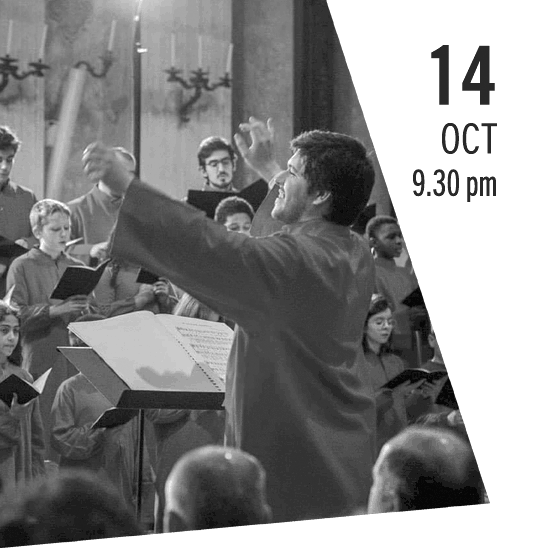 October 14, Saturday, 9.30 pm;
October 14, Saturday, 9.30 pm;
Sé do Funchal · Funchal;
THE ENGLISH CHORAL TRADITION
João Vaz, organ;
Beatriz Resendes, choir organ;
Capella de S. Vicente:
Joana Timóteo, Rita Carvão, Salomé Monteiro, sopranos;
Catarina Baptista, Rita Meireles, altos;
João Borges, João Coutinho, Pedro Rodrigues, tenores;
Martim Líbano Monteiro, Mateus Líbano Monteiro, baixos;
Pedro Rodrigues, direction;
The English musical tradition is intimately connected with choral practice. Strongly encouraged from the second half of the nineteenth century, the practice of group singing (independently of age or social status) established a tradition of increasing quality and meaning, down to today. This strategy gave rise to the creation and development of various choirs (including children and adults), some of which have, still today, considerable fame, such as Westminster Abbey in London or King College in Cambridge. At the same time, this intense choral activity allowed the composition of many works which enriched the vocal repertoire. Many of these works were composed for special occasions (royal weddings, coronations, etc.), which have lasted through the years and, in some cases, become genuine symbols of British identity. I was glad was written by Charles Hubert Parry for the coronation of King Edward VII in 1902, being performed afterwards in many other ceremonies, including the coronation of King Charles III this year, and the marriage of Prince William and Catherine Middleton in 2011. In this last ceremony This is the day by John Rutter was given its first performance. Rutter’s works, generally written for choir and organ, have become very popular, especially on account of the efficacy of his melodies, generally conceived for performance by young choristers. One of the most famous English composers ever, Edward Elgar, distanced himself from the Victorian musical world, by means of his partially autodidactic training, his relatively humble origins and his Roman Catholicism. The Vesper Voluntaries (1890) is a series of short pieces for organ which were certainly influenced by his time as organist at the church of St George in Worcester (between 1846 and 1885). In the same way, the Three Motets (1887), which include Ave verum corpus and Ave Maria, are short choral works with a simply organ accompaniment, conceived for the Catholic liturgy taking into account a choir (and an instrument) of modest dimensions. Christmas carols have a fundamental role in the English world. Many composers have written arrangements of these traditional melodies. This is the case of This is the truth sent from the above, which Ralph Vaughan Williams used for a choral arrangement , or The First Nowell, which closes this concert, in an arrangement for choir and the two organs of the Cathedral of Funchal. The Capella of S. Vicente is made up of a grou of university singers, to which are added, depending on the circumstances, young choristers and professional singers. The presence of choristers makes the Capella de S. Vicente the only Portuguese vocal group to reproduce the system of musical training which exists in many English schools. In the schools which are its partners (A Voz do Operário, in Lisbon, and the Agrupamento de Escolas D. Dinis, in Odivelas), choral singing covers the entire school, within the curricular timetable, and gives rise to many publis performances of repertoire of high quality. This system of teaching, in which musical practice and constant contact with professionals are encouraged from a young age, was prevalent in Portugal (and the majority of European Catholic countries) aup to the beginning of the nineteenth century. Though today’s concert makes use only of the university singers, the repertoire presented pays homage to the choristers and a model of teaching which still obtains today in the United Kingdom.
João Vaz
Program
CHARLES HUBERT PARRY (1848-1918)
I was glad
EDWARD ELGAR (1857-1934)
Vesper Voluntaries Op. 26
Introduction
Voluntary I
Ave Verum
Vesper Voluntaries Op. 26
Voluntary III
Ave Maria
Vesper Voluntaries Op. 26
Voluntary VIII
JOHN RUTTER (1945)
This is the day
JOÃO VAZ (1963)
Introduction to «This is the truth sent from above»
TRADITIONAL ENGLISH (arrangement Ralph Vaughn Williams)
This is the truth sent from above
JOHN RUTTER
The Lord bless you and keep you
Toccata in Seven
A Clare benediction
Christmas lullaby
TRADITIONAL ENGLISH (arrangement João Vaz)
The First Nowell
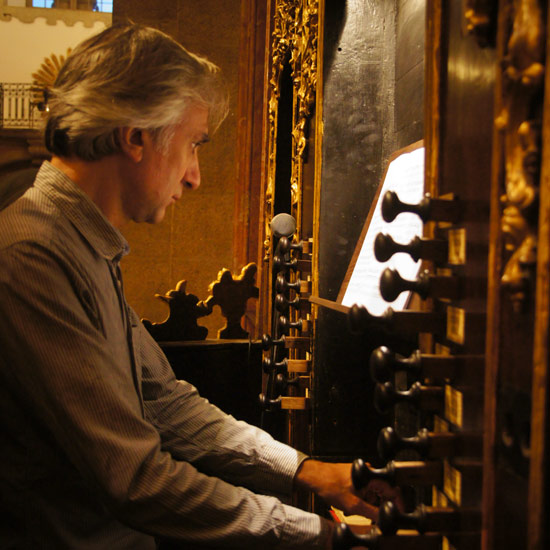 João Vaz
João Vaz
Born in Lisbon, João Vaz graduated in organ from the Higher School of Music in Lisbon, under Antoine Sibertein-Blanc, and from the Higher Conservatoire of Music of Aragon in Zaragoza, where he studied with José Luis González Uriol, on a grant from the Gulbenkian Foundation. He also holds a doctorate in music and musicology from the University of Évora, with a thesis, supervised by Rui Vieira Nery, on Portuguese organ music at the end of the Ancien Regime. He has been highly active internationally, both as a performer and as a teacher on courses or member of the jury of performance competitions. He has made over ten solo recordings, significant among them being those made on Portuguese organs. He currently teaches organ at the Higher School of Music in Lisbon and is artistic director of the Madeira Organ Festival and the series of concerts which are given on the six organs of the National Palace of Mafra (to whose restoration he was a permanent consultant) and of the historical organ of the Church of S. Vicente de Fora, in Lisbon (of which he became titular organist in 1997.) in 2017 he was awarded the Medal of Honour of the Municipality of Mafra.
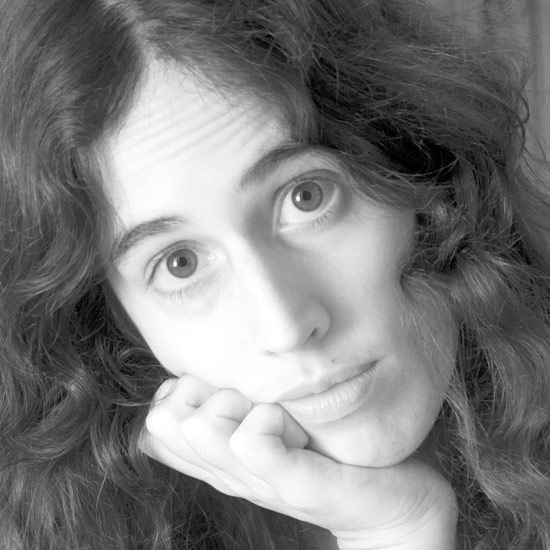
Beatriz Resendes
Born in Lisbon, she began his musical studies at the Instituto Gregoriano de Lisboa, studying organ with António Esteireiro, where she completed his secondary education in Music. During her musical academic career she had the opportunity to participate in several masterclasses with personalities such as François Espinasse, Jean Ferrard, Hans-Ola Ericsson, Jan Willem Jansen, Roberto Antonello and José Luis González Uriol. Her participation, as Young Talent, at the Haarlem Organ Festival in 2012, where he played in the masterclasses of Margaret Phillips and Olivier Latry, stands out. As a soloist, she performed in recitals at Lisbon Cathedral, Nossa Senhora do Cabo Church, in the Jerónimos Monastery concert cycles (2012 and 2013) and at the Algarve Organ Festival (2020). In 2013 he won the first prize in the organ competition of the Conservatory of Music of Ourém and Fátima. In 2017, she finished her degree in Organ at the Escola Superior de Música de Lisboa, with the highest grade, in the class of João Vaz.
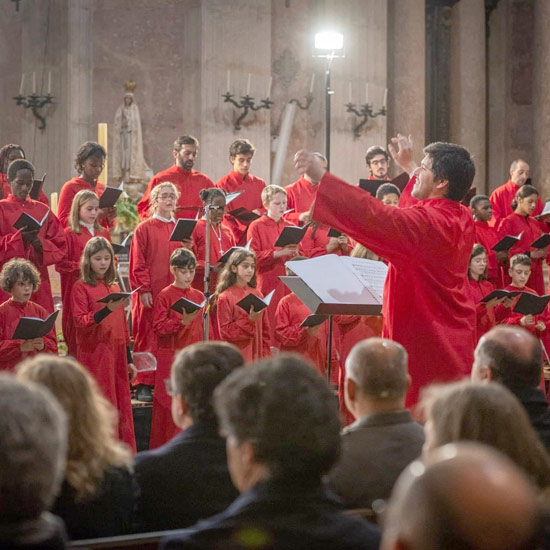 Capella de S. Vicente
Capella de S. Vicente
Created in 2021, the Capella de S. Vicente is a development of the Capella Patriarchal (a group principally devoted to the dissemination of the treasures of Portuguese sacred music) and has as its main objective choral practice as an integral part of individual training. With a basis of eight university student singers, who frequent or frequented advanced studies in music, the Capella de S. Vicente has sought to acquire experience, whether in terms of historical musical sources, or of the high quality of performance, concentrating intensely on the observation of performance practices of different eras. This experience is mainly transmitted to the singers in two ways: personal collaboration with the musical team of Capella Patriarchal and musical and stylistic work obtained through the experience of its directors João Vaz and Pedro Rodrigues. With a wide repertoire, from Gegorian chant to contemporary music, the Capella de S. Vicente also has as its mission contributing to the reactivation of the excellence of musical practice in the service of the liturgy. From its foundation, in partnership with the Patriarchate of Lisbon and the Rectory of the Church of São Vicente de Fora, its musical work has been organized in three cycles: masses with choir, visits to the Museum of the Patriarchate of Lisbon with music and concerts in churches.
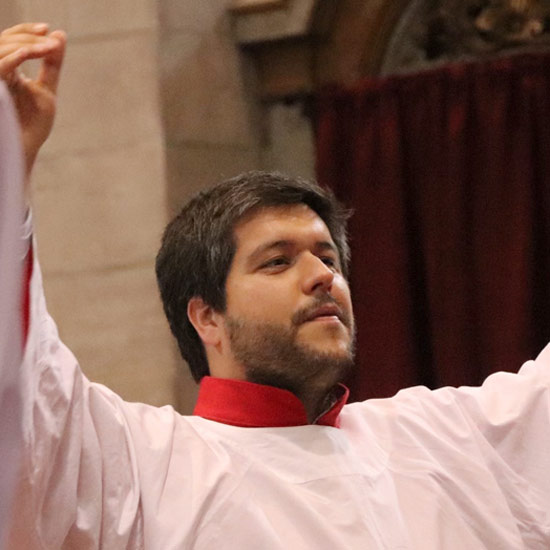 Pedro Rodrigues
Pedro Rodrigues
He initially trained at the Instituto Gregoriano de Lisboa. He graduated in choral conducting and musical training at the Higher School of Music of Lisbon, was a student in orchestra conducting at the Higher National Orchestra Academy (Orquestra Metropolitana de Lisboa) under the guidance of conductor Jean-Marc Burfin. He was principal conductor of the Schola Cantorum of the Basilica da Estrela, teacher at the Lisbon Metropolitan Conservatory and at the Luís António Maldonado Rodrigues Music School (Torres Vedras), in the disciplines of orchestra and choir. He was a member of the Coordinating Centre of the Historic Organs of Santarém. He is a founding member and music director of Capella de S. Vicente. He is a member of the Gulbenkian Choir and the Lisbon Gregorian Choir.
